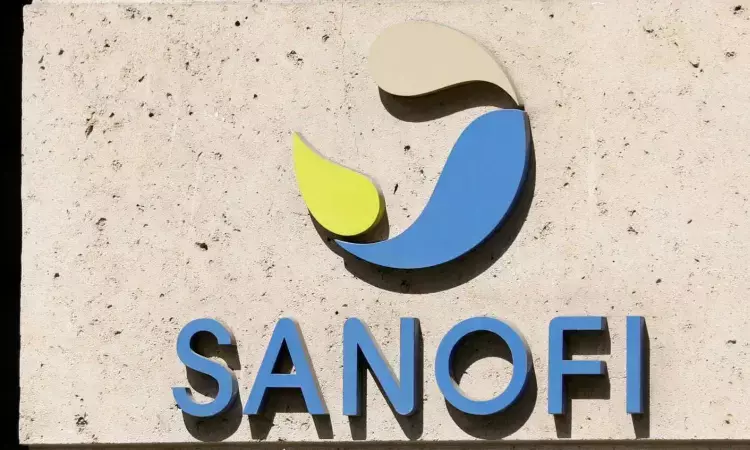- Home
- Medical news & Guidelines
- Anesthesiology
- Cardiology and CTVS
- Critical Care
- Dentistry
- Dermatology
- Diabetes and Endocrinology
- ENT
- Gastroenterology
- Medicine
- Nephrology
- Neurology
- Obstretics-Gynaecology
- Oncology
- Ophthalmology
- Orthopaedics
- Pediatrics-Neonatology
- Psychiatry
- Pulmonology
- Radiology
- Surgery
- Urology
- Laboratory Medicine
- Diet
- Nursing
- Paramedical
- Physiotherapy
- Health news
- Fact Check
- Bone Health Fact Check
- Brain Health Fact Check
- Cancer Related Fact Check
- Child Care Fact Check
- Dental and oral health fact check
- Diabetes and metabolic health fact check
- Diet and Nutrition Fact Check
- Eye and ENT Care Fact Check
- Fitness fact check
- Gut health fact check
- Heart health fact check
- Kidney health fact check
- Medical education fact check
- Men's health fact check
- Respiratory fact check
- Skin and hair care fact check
- Vaccine and Immunization fact check
- Women's health fact check
- AYUSH
- State News
- Andaman and Nicobar Islands
- Andhra Pradesh
- Arunachal Pradesh
- Assam
- Bihar
- Chandigarh
- Chattisgarh
- Dadra and Nagar Haveli
- Daman and Diu
- Delhi
- Goa
- Gujarat
- Haryana
- Himachal Pradesh
- Jammu & Kashmir
- Jharkhand
- Karnataka
- Kerala
- Ladakh
- Lakshadweep
- Madhya Pradesh
- Maharashtra
- Manipur
- Meghalaya
- Mizoram
- Nagaland
- Odisha
- Puducherry
- Punjab
- Rajasthan
- Sikkim
- Tamil Nadu
- Telangana
- Tripura
- Uttar Pradesh
- Uttrakhand
- West Bengal
- Medical Education
- Industry
Sarclisa plus KRd significantly improved rate of minimal residual disease negativity in transplant-eligible patients with newly diagnosed multiple myeloma versus KRd alone: Sanofi

Paris: Sanofi has announced that the Phase 3 trial investigating Sarclisa (isatuximab) in combination with carfilzomib, lenalidomide and dexamethasone (KRd) showed a statistically significant improvement in the rate of minimal residual disease (MRD) negativity, compared with KRd alone, after autologous stem cell transplant (ASCT) consolidation in transplant-eligible patients with newly diagnosed multiple myeloma (MM).
These results from the IsKia trial conducted by the European Myeloma Network (EMN) were presented during the oral plenary session (#4) at the American Society of Hematology (ASH) Annual Meeting by Francesca Gay, Associate Professor at the University Division of Hematology, AOU Città della Salute e della Scienza di Torino, University of Torino and Department of Molecular Biotechnology and Health Sciences - member of the Young EMN board of directors.
MRD negativity is defined as the absence of myeloma cells in the bone marrow after treatment, as measured by diagnostic techniques that must have a sensitivity of at least 1 in 100,000 cells. In this trial, MRD negativity was detected with a sensitivity of 10-5 (no cancer cells detected within 100,000 bone marrow cells) and 10-6 (no cancer cells detected within 1,000,000 bone marrow cells).
In an intent-to-treat (ITT) analysis, the primary endpoint of rate of MRD negativity using next generation sequencing with a sensitivity of 10-5 after consolidation for patients receiving Sarclisa combination therapy (n=151) was 77% versus 67% for those who received KRd alone (n=151) (odds ratio [OR] 1.67; p=0.049). The respective rates of MRD negativity at sensitivity of 10-6 were 67% versus 48% (OR 1.93; p=0.006). The MRD negativity benefit, both at 10-5 and 10-6 sensitivities, was retained in all subgroups analyzed with similar benefit in both standard-risk and high-risk patients.
There was a statistically significant difference in MRD negativity rates after induction with Sarclisa in combination with KRd versus KRd (10-5: 45% versus 26%, p<0.001; 10-6: 27% versus 14%, p=0.004).
The safety and tolerability of Sarclisa observed in this trial were consistent with the observed safety profile of Sarclisa in other clinical trials, with no new safety signals observed. There were three treatment-related deaths in the Sarclisa combination arm and one in the KRd arm.
Peter C. Adamson, Global Development Head, Oncology, Sanofi said, “The statistically significant rates of MRD negativity observed with Sarclisa combination therapy further support our belief in Sarclisa as a potential best-in-class therapy. Effective front-line treatment is critical for newly diagnosed patients, because achieving undetectable levels of disease early in the treatment journey may lead to better long-term outcomes. We look forward to our continued collaboration with the EMN to explore the potential of this novel combination regimen for those with transplant-eligible, newly diagnosed multiple myeloma.”
The use of Sarclisa in combination with KRd in this patient population is investigational and has not been evaluated by any regulatory authority.
Ruchika Sharma joined Medical Dialogue as an Correspondent for the Business Section in 2019. She covers all the updates in the Pharmaceutical field, Policy, Insurance, Business Healthcare, Medical News, Health News, Pharma News, Healthcare and Investment. She has completed her B.Com from Delhi University and then pursued postgraduation in M.Com. She can be contacted at editorial@medicaldialogues.in Contact no. 011-43720751


